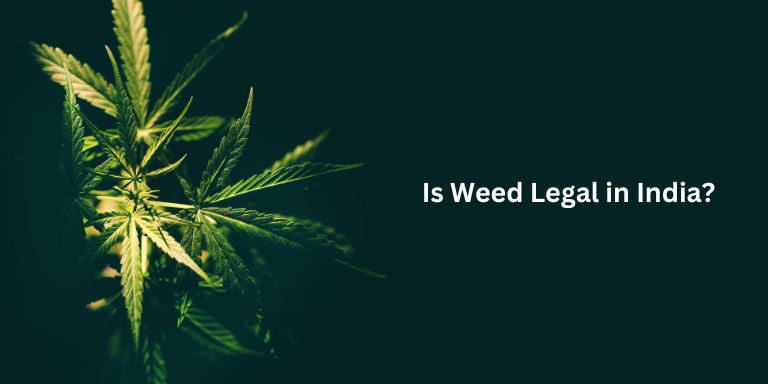Is Weed Legal in India?

Cannabis, often referred to as weed or marijuana, has a complex legal status in India. This blog aims to provide clarity on its legality, exploring key laws, historical contexts, current debates, and potential future developments surrounding its use.
What is Weed?
Weed, or cannabis, refers to a group of flowering plants that include Cannabis sativa, Cannabis indica, and Cannabis ruderalis. The plant contains psychoactive compounds like tetrahydrocannabinol (THC), which is responsible for its mind-altering effects.
Historical Background
The legal status of cannabis in India has deep roots in its historical and cultural significance. For centuries, cannabis has been part of religious rituals and traditional medicine practices across the Indian subcontinent. The Indian Hemp Drugs Commission of 1894-1895 recognized its cultural importance and medicinal benefits, advocating for regulated use rather than outright prohibition.
Why Weed is Illegal in India
Legal Framework
The Narcotic Drugs and Psychotropic Substances Act (NDPS Act), 1985: Enforced to regulate narcotic drugs and psychotropic substances, including cannabis. This legislation categorizes cannabis as a Schedule I drug, implying severe restrictions on its use and possession.
Current Legal Status
Cannabis Resin (Charas) and Marijuana/Ganja: Illegal under the NDPS Act.
Cannabis Seeds and Leaves: While not explicitly regulated under the NDPS Act, their possession and use are generally considered illegal unless authorized.
Medical Cannabis
- Recognition of Medical Benefits: Cannabis has shown promise in alleviating symptoms of various medical conditions such as chronic pain, epilepsy, multiple sclerosis, and chemotherapy-induced nausea.
- Legalization Efforts: Some countries and states have legalized cannabis for medical use, leading to discussions in India about its potential benefits and regulatory frameworks.
- Legalization Movements: Advocates argue that legalizing medical cannabis could provide relief to patients, generate revenue through taxation, and foster research into its therapeutic potential.
Future of Cannabis in India
The future of cannabis legalization in India remains uncertain but evolving, particularly in the context of medical use. Several factors may influence future developments:
- Research and Clinical Trials: Continued research and clinical trials may provide further evidence of cannabis's efficacy and safety for medical purposes.
- Public Perception: Shifting public attitudes towards cannabis, influenced by global trends and scientific findings, could impact policy decisions.
- Regulatory Considerations: Developing robust regulatory frameworks to ensure safe access to medical cannabis while preventing misuse and ensuring public health.
Conclusion
The legal status of cannabis in India remains complex and tightly regulated under the NDPS Act. While acknowledging its cultural significance and potential medical benefits, strict enforcement of existing laws is predominant. Efforts towards legalizing cannabis for medical purposes face challenges but continue to evolve.
For those interested in this topic, staying informed about legal interpretations, scientific research, and public policy debates is crucial. This blog offers a factual overview of cannabis legality in India, aiming to inform readers about its legal landscape and ongoing developments, including discussions surrounding medical cannabis.
References
- Narcotic Drugs and Psychotropic Substances Act, 1985. Government of India.
- Indian Hemp Drugs Commission Report, 1894-1895.
- Single Convention on Narcotic Drugs, 1961. United Nations Office on Drugs and Crime.
- "Cannabis in India: Historical Developments and Legislative Control." International Journal of Drug Policy, 2019.
- "Medical Use of Cannabis and Cannabinoids: Questions and Answers for Policymaking." World Health Organization, 2018.


Leave a comment